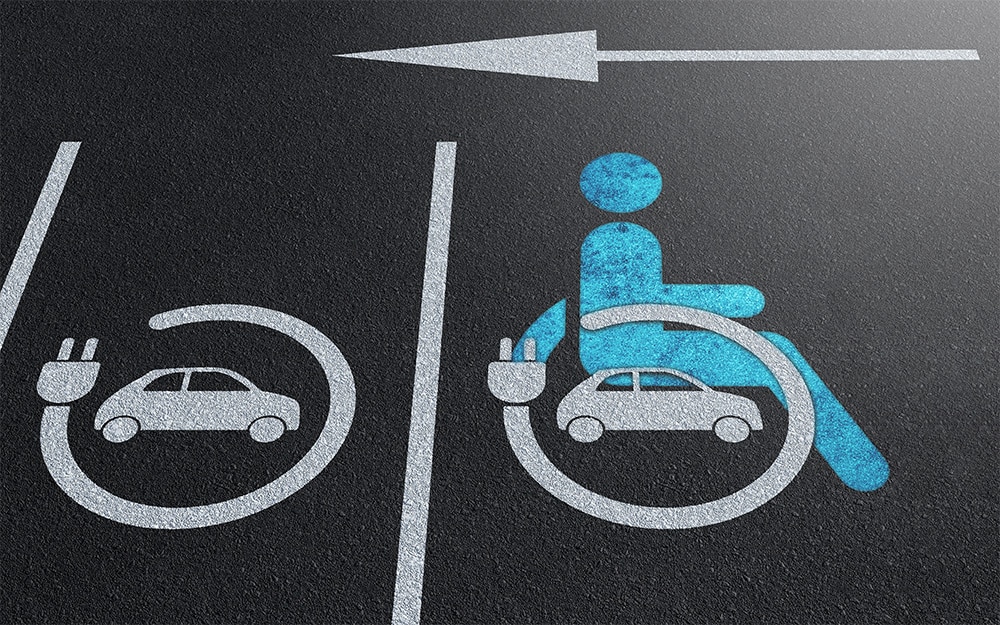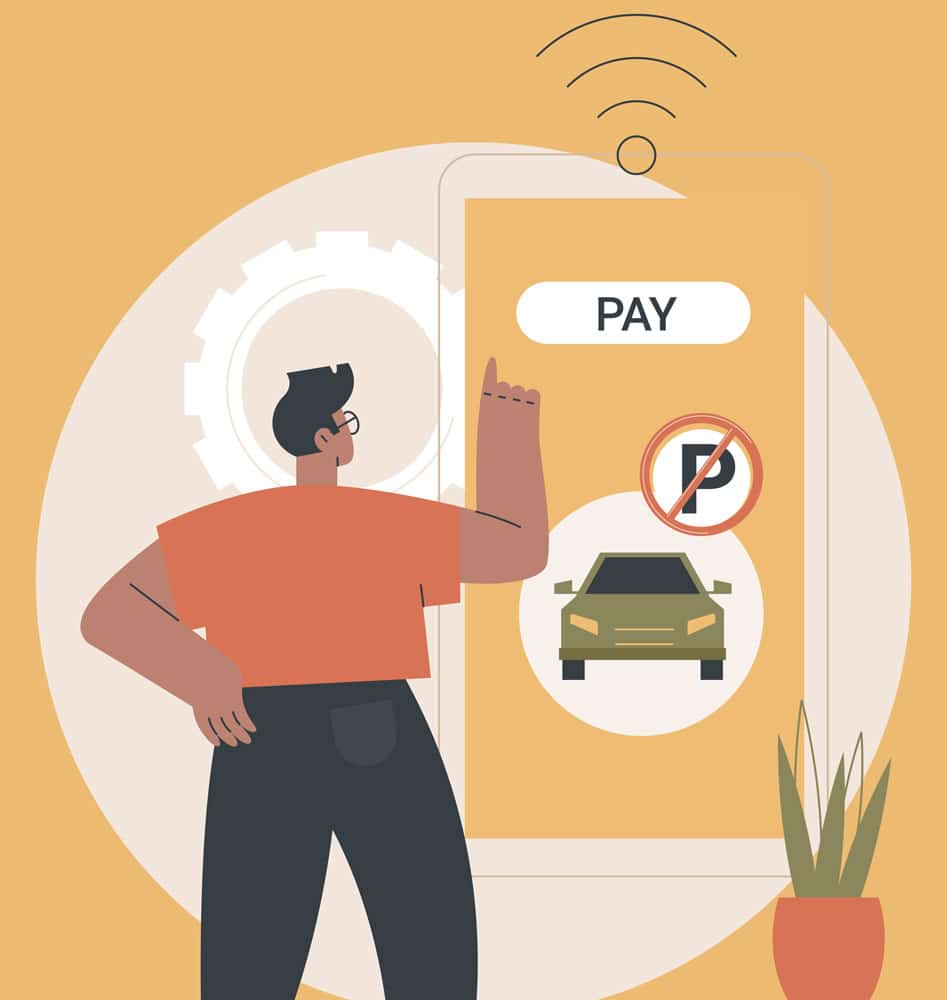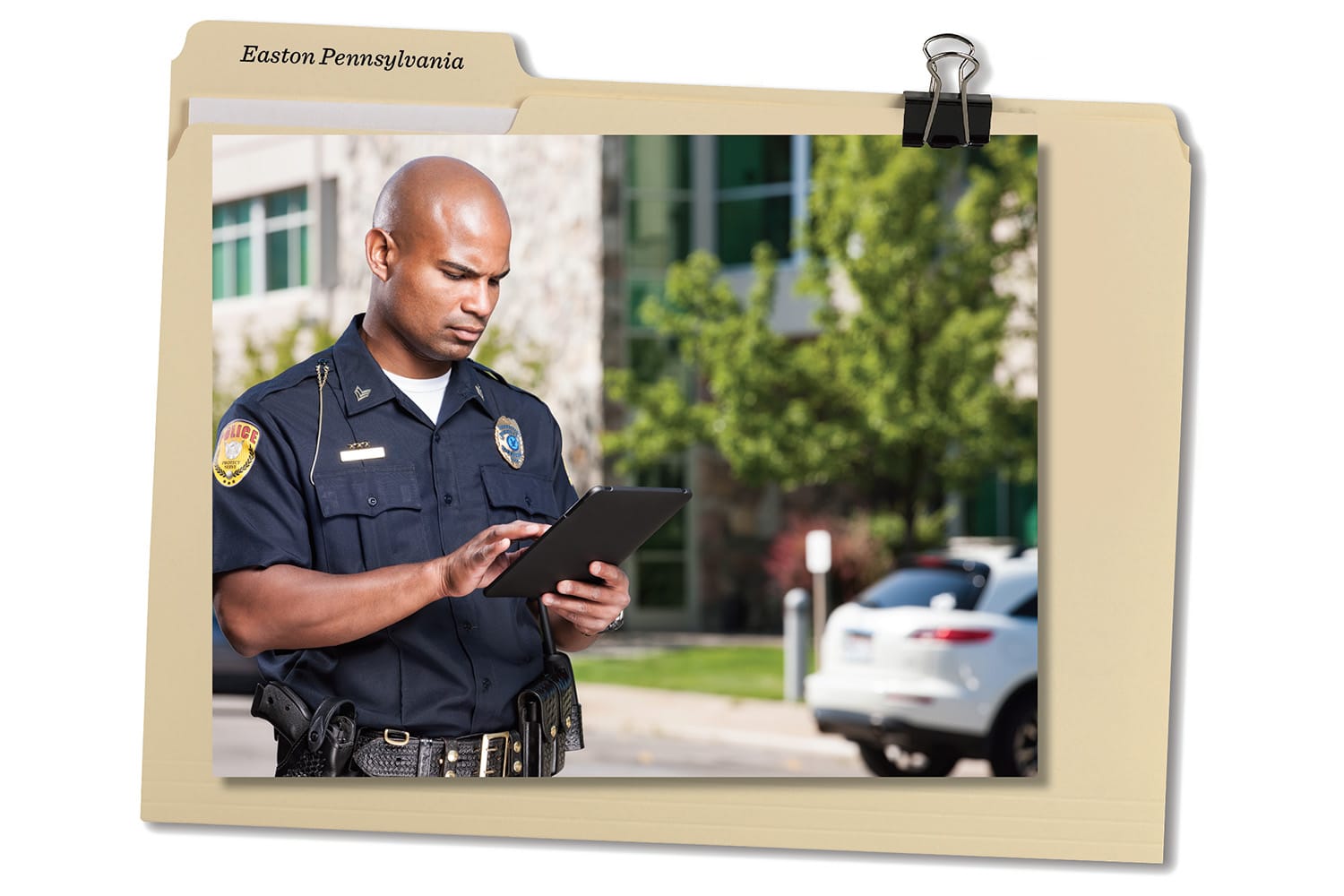
EV Charging Accessibility
A Comprehensive Guide in Ensuring ADA Compliance in Electric Vehicle
Share:
Share:
Recent paradigm shifts in the United States are indicating an appetite for decriminalization of certain types of offenses. One of those is parking tickets. What happens to a parking ticket from issuance to disposition? In many states, a parking ticket is processed at some level in the court system. The volume of parking tickets written in the United States annually creates a considerable number of cases weighing down already overburdened court systems that could be better focused on criminal matters. When the question is posed to a municipality as to why they choose to process their tickets in this way, they will generally respond with two answers: “That’s the way we’ve always done it,” or “I don’t know.” Neither is a good answer.
Before proceeding, let’s examine the scofflaws. Every municipality has them—some that are in arrears to the tune of thousands of dollars. When you entrust the court system to manage these debts owed to you, the standard practice by the magistrate is to put the scofflaw on a payment plan. Typically, the monthly payment is so low that even if they continue to pay the scheduled amount, the municipality will never be made whole on that debt. Of course, the scofflaw will most certainly continue to rack up more fines.
The question arises, “What other option do we have as a municipality?” The simple answer is to decriminalize parking tickets. Non-criminal adjudication allows the municipality to capture the outstanding debt owed without the need to have a criminal warrant issued for the offender. It also puts the entire process back into the hands of the issuing authority where it can get the most individual attention.
Decriminalizing parking tickets requires several steps. A municipality needs to first determine that their current process is not as effective and efficient as it should be. If you are currently using the courts, you are absolutely sacrificing revenue. For example, in Pennsylvania, a parking ticket is issued for a violation. After a period (no more than 30 days), the ticket can then be turned into a traffic citation which is when it is subsequently turned over to the magisterial court system. The court then must contact the violator to obtain a plea, collect payment, or schedule a hearing on the matter. If the violator does not respond, a warrant for their arrest can be issued. Most magisterial courts in Pennsylvania use a constable to serve their warrants. When a warrant is served, the constable gets paid a fee for that service, and the violator can be taken forthwith before the issuing judge. Most often, if the violator pays some amount of money owed, they will be put on a payment plan and be free to go. Under this system, the municipality that has already done the work only gets a small portion of their revenue.
But is non-criminal adjudication of parking tickets all about the revenue? Of course not. The most important benefit of removing the courts from the process is that it will put command and control of the parking ticket and the revenue created by it back in the hands of the issuing authority.
Putting control of the ticket entirely into your decision-making realm allows you to decide how you will handle the customer rather than relegating that responsibility to a third party. When the magistrate and their staff preside over your violation, you have no say what happens to the violation or how the customer is treated. For example, the magistrate would not have access to the data you possess. This information may identify violator history and allow for leniency or not.
You should be aware that it is not uncommon for administrators or directors of public parking operations to want to make this transition only to find out later that the powers that be (council, mayor, city administrator, etc.) are not quite ready to move. Don’t be discouraged. It is perfectly fine to have your team develop your plan in advance, so you are ready to move forward at a moment’s notice. Much of the time spent on the process is in development of protocols, legislative actions, or amendments, etc., and having a complete plan in hand is crucial.

By now, most municipalities have incorporated some or all the technologies that are needed to reach successful non-criminal adjudication. If you have not, your parking professional point-person should be seeking out qualified vendors on your behalf to provide you with the best services at the best prices. If the municipality does need to engage technology vendors, remember, this is an investment. The return on investment for this transition is both financial and operational. Financially, the municipality stands to recover debt that has long been owed to them and will continue to collect more effectively moving forward. Operationally, your staff will be much more efficient when you eliminate clunky software, paper tickets, and spreadsheets.
Using the court system to manage the adjudication of your tickets can be confusing, costly, and inconvenient for the customer. It can cause untold loss of revenue, a decrease in efficiency and effectiveness, and a misuse of resources for the municipality. Clearly, the time of using the courts to handle parking violations has come to an end. Moving forward, non-criminal adjudication of parking tickets and putting the control of the entire system back into the hands of the issuing authority is the way to go.

Matt Lohenitz is the Owner of LOHI Municipal Consulting, a member of the IPMI State & Regional Affiliate Committee, and President of the Pennsylvania Parking Association.

A Comprehensive Guide in Ensuring ADA Compliance in Electric Vehicle

There is no one-size-fits-all for EV charging infrastructure, nor is

Collecting millions in previously uncollected revnue.
Parking & Mobility is IPMI’s flagship publication, covering the news, trends, analysis, technologies, and people of the parking and mobility industry, and how it affects and influences communities around the world.
| Cookie | Duration | Description |
|---|---|---|
| cookielawinfo-checkbox-advertisement | 1 year | Set by the GDPR Cookie Consent plugin, this cookie is used to record the user consent for the cookies in the "Advertisement" category . |
| cookielawinfo-checkbox-analytics | 11 months | This cookie is set by GDPR Cookie Consent plugin. The cookie is used to store the user consent for the cookies in the category "Analytics". |
| cookielawinfo-checkbox-functional | 11 months | The cookie is set by GDPR cookie consent to record the user consent for the cookies in the category "Functional". |
| cookielawinfo-checkbox-necessary | 11 months | This cookie is set by GDPR Cookie Consent plugin. The cookies is used to store the user consent for the cookies in the category "Necessary". |
| cookielawinfo-checkbox-others | 11 months | This cookie is set by GDPR Cookie Consent plugin. The cookie is used to store the user consent for the cookies in the category "Other. |
| cookielawinfo-checkbox-performance | 11 months | This cookie is set by GDPR Cookie Consent plugin. The cookie is used to store the user consent for the cookies in the category "Performance". |
| CookieLawInfoConsent | 1 year | Records the default button state of the corresponding category & the status of CCPA. It works only in coordination with the primary cookie. |
| elementor | never | This cookie is used by the website's WordPress theme. It allows the website owner to implement or change the website's content in real-time. |
| viewed_cookie_policy | 11 months | The cookie is set by the GDPR Cookie Consent plugin and is used to store whether or not user has consented to the use of cookies. It does not store any personal data. |
| Cookie | Duration | Description |
|---|---|---|
| _ga | 2 years | The _ga cookie, installed by Google Analytics, calculates visitor, session and campaign data and also keeps track of site usage for the site's analytics report. The cookie stores information anonymously and assigns a randomly generated number to recognize unique visitors. |
| _ga_02PMHW8YWC | 2 years | This cookie is installed by Google Analytics. |
| _ga_LC0QJJHM3J | 2 years | This cookie is installed by Google Analytics. |
| _ga_V9KYTSBYT2 | 2 years | This cookie is installed by Google Analytics. |
| iutk | 5 months 27 days | This cookie is used by Issuu analytic system to gather information regarding visitor activity on Issuu products. |
| Cookie | Duration | Description |
|---|---|---|
| mc | 1 year 1 month | Quantserve sets the mc cookie to anonymously track user behaviour on the website. |
| Cookie | Duration | Description |
|---|---|---|
| ultp_view_1052 | 1 day | No description |
| ultp_view_1058 | 1 day | No description |
| ultp_view_1060 | 1 day | No description |
| ultp_view_1064 | 1 day | No description |
| ultp_view_1068 | 1 day | No description |
| ultp_view_1070 | 1 day | No description |
| ultp_view_1072 | 1 day | No description |
| ultp_view_1078 | 1 day | No description |
| ultp_view_1082 | 1 day | No description |
| ultp_view_1088 | 1 day | No description |
| ultp_view_1100 | 1 day | No description |
| ultp_view_1103 | 1 day | No description |
| ultp_view_1114 | 1 day | No description |
| ultp_view_1118 | 1 day | No description |
| ultp_view_1122 | 1 day | No description |
| ultp_view_1125 | 1 day | No description |
| ultp_view_1130 | 1 day | No description |
| ultp_view_1132 | 1 day | No description |
| ultp_view_1135 | 1 day | No description |
| ultp_view_1541 | 1 day | No description |
| ultp_view_1554 | 1 day | No description |
| ultp_view_1557 | 1 day | No description |
| ultp_view_1560 | 1 day | No description |
| ultp_view_1563 | 1 day | No description |
| ultp_view_1568 | 1 day | No description |
| ultp_view_1572 | 1 day | No description |
| ultp_view_1576 | 1 day | No description |
| ultp_view_1580 | 1 day | No description |
| ultp_view_2305 | 1 day | No description |
| ultp_view_2321 | 1 day | No description |
| ultp_view_2338 | 1 day | No description |
| ultp_view_2342 | 1 day | No description |
| ultp_view_259 | 1 day | No description |
| ultp_view_270 | 1 day | No description |
| ultp_view_275 | 1 day | No description |
| ultp_view_286 | 1 day | No description |
| ultp_view_3074 | 1 day | No description |
| ultp_view_3115 | 1 day | No description |
| ultp_view_3334 | 1 day | No description |
| ultp_view_3336 | 1 day | No description |
| ultp_view_3338 | 1 day | No description |
| ultp_view_3340 | 1 day | No description |
| ultp_view_3346 | 1 day | No description |
| ultp_view_3354 | 1 day | No description |
| ultp_view_3361 | 1 day | No description |
| ultp_view_3367 | 1 day | No description |
| ultp_view_365 | 1 day | No description |
| ultp_view_367 | 1 day | No description |
| ultp_view_38 | 1 day | No description |
| ultp_view_3846 | 1 day | No description |